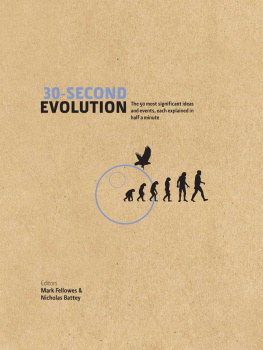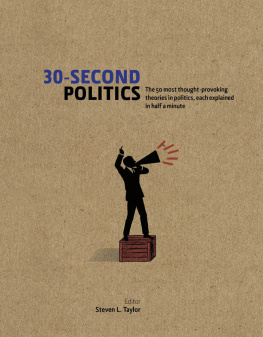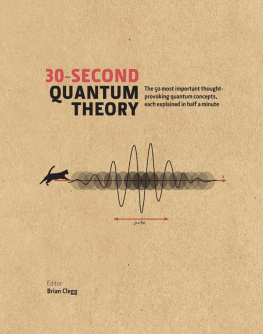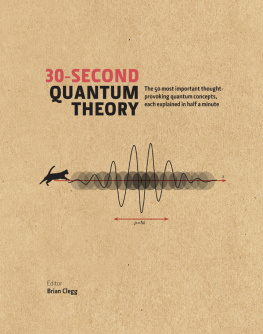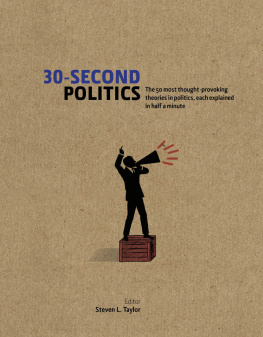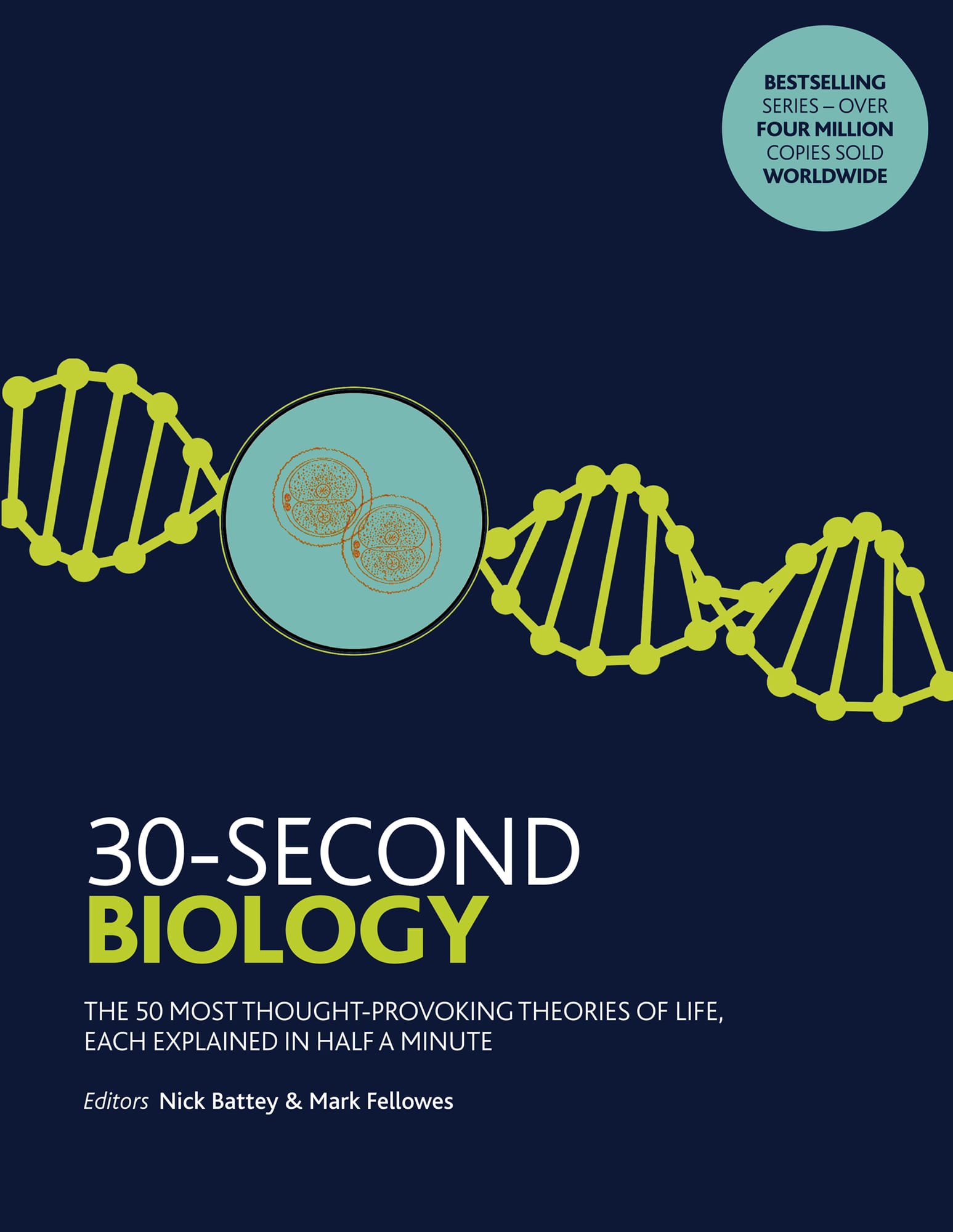30-SECOND
BIOLOGY
THE 50 MOST THOUGHT-PROVOKING THEORIES OF LIFE, EACH EXPLAINED IN HALF A MINUTE
Editors
Nick Battey
Mark Fellowes
Contributors
Nick Battey
Brian Clegg
Phil Dash
Mark Fellowes
Henry Gee
Jonathan Gibbins
Tim Richardson
Tiffany Taylor
Philip J. White
Illustrations
Steve Rawlings

INTRODUCTION
Nick Battey & Mark Fellowes
Its a little over 200 years since the word biology was invented to identify the part of the natural world capable of reproducing and maintaining itself. In the beginning it attracted vitalist thinking (the assumption that life required some mysterious force to sustain it), as people sought to account for the unusual abilities of living organisms. But the development of cell theory, physiology and the theory of evolution in the nineteenth century gradually helped to fill the gaps about how life worked. In the twentieth century genetics, biochemistry, molecular biology and developmental biology established clear mechanistic knowledge of the way life runs itself, showing how the features and processes characteristic of organisms are regulated during the life of the individual and passed on to offspring. At the same time, ecology, evolutionary biology and biogeography became key disciplines for understanding the behaviour and interactions of populations of organisms with each other and their environment. The subdisciplines of zoology, botany, microbiology and virology elucidated the details of how life within the different kingdoms worked, while taxonomists and systematists explored its hierarchies and origins.
Twenty-first century science
The domains of biology continue to expand, making it no exaggeration to claim that it is the science of this century; there is little of global importance that is not touched by it. Biomedicine, including regenerative medicine and medical genetics, is exploiting biological knowledge to give ever-increasing control over life, death, illness and disease. At the same time, the other aspects of biology allow us to engage with the crucial problems that threaten to overwhelm society climate change, population growth, pollution, food shortages, erosion of natural resources and species invasions. In a sense the integrative, ecological dimensions to biology take on the consequences of advances in human biology. As the dominant discipline of the Anthropocene (the proposed new geological epoch that reflects the current human domination of our planet, see ), biology conditions what we can do and shapes how we deal with the results of our actions. Almost everything that matters is affected by biology.
Amoeba proteus is a tiny one-celled organism often found in freshwater environments.
The one notable absence from this brief appraisal is culture. Broadly speaking, culture can be considered to be the consequence of human consciousness, passed on through the generations not by genes but by one form or other of mental transmission. Psychology deals with the human mind, and we have not considered it part of biology in this book because it is a distinct subject with largely separate traditions to biology; and biology itself is anyway big enough as originally defined. But an obvious prediction is that rigorous biological explanations of the way the mind works, and eventually of the way culture works, will be definitive advances when viewed from the perspective of 2050: that the 30-Second Biology of that date will include the science of the mind as a dominant feature. A different guess might be that biological explanations of the mind and the culture it generates are prosaic: what matters is not what causes culture but what it means to us, a realm in which biological explanations may be of little interest. Not so, though, the central place of biology in the future life of the human species. How we deal with a rapidly growing (and ageing) population, the destruction of habitats, and how we regulate what we do with our biological power, will be critical issues that it will take all our biological and cultural skills to address.
How this book works
In 30-Second Biology each topic is clearly and concisely presented on one page in a punchy single paragraph: the 30-second theory. For an even quicker overview, there is the 3-second dissection alongside the key facts encompassed in a single sentence. Then the 3-minute synthesis fleshes this out, addressing a thought-provokingly quirky or intriguing aspect of the subject. Each chapter also contains the biography of a pioneer or high achiever in the field people such as Norman Borlaug, the developer of high-yielding, semi-dwarf wheat, who is credited with saving millions from starvation and hailed as the father of the green revolution.
The book begins with Life, a scan of the major groups of living organisms. It then discusses Genes, the blueprint of life, and, in Genes to Organisms, looks at how the information encoded by genes is transformed into the cells and tissues of living organisms. Next Growth & Reproduction are considered, focusing on these processes in plants, animals and bacteria. Energy & Nutrition looks at how energy is converted into life, and how living processes maintain and are maintained within bodies. Finally, the chapters on Evolution and Ecology discuss how life arose, how organisms live together and the peculiar strains placed on these relationships by the phenomenal growth of the human species. It is this dominance that threatens to destabilize everything on the planet; the growth of biology is one reason for it, but understanding how life works and how organisms interact seems to us something intrinsically beautiful. Lets see if that category still exists in 2050.
The impact of climate change and human settlements on the alpine habitat of snow leopards makes them an endangered species.

LIFE
LIFE
GLOSSARY
biofilm Self-sufficient community of bacteria in which different species may cooperate, some recycling the wastes of others. Dental plaque is a biofilm.


